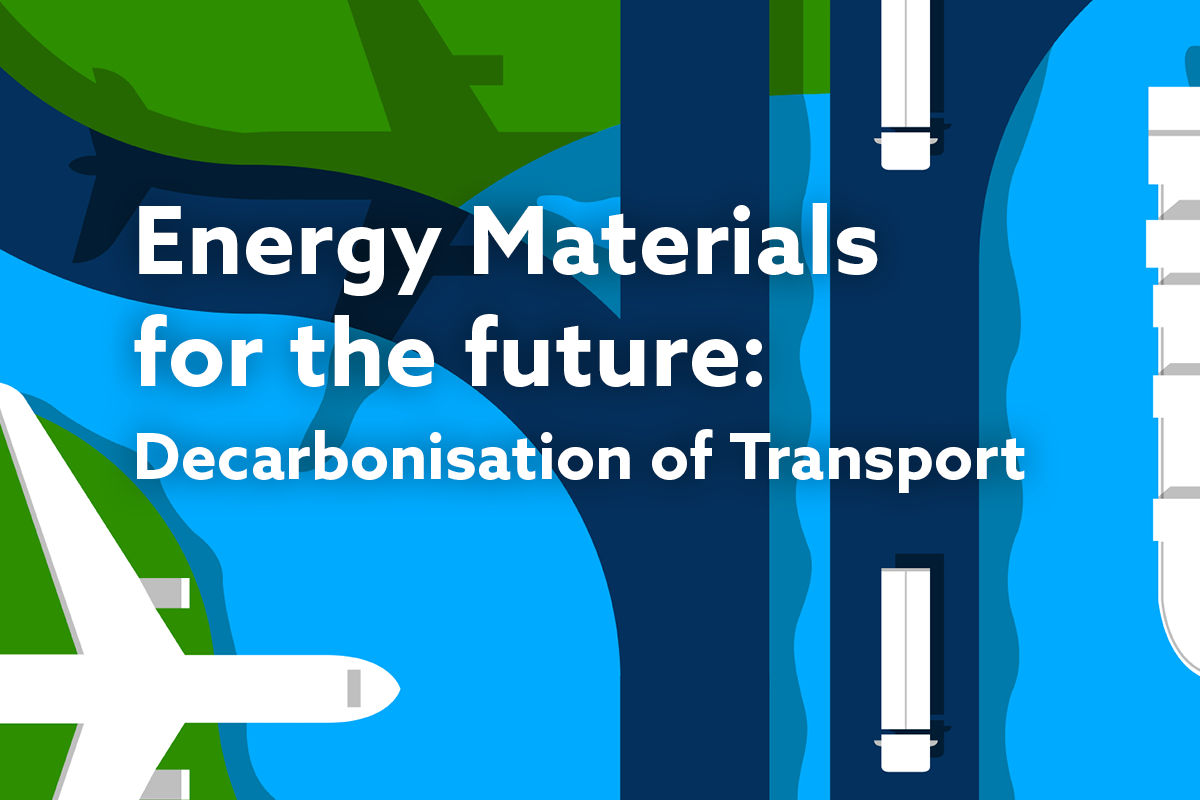Energy Materials for the Future: Sustainability
Energy Sources for Transport

This series of webinars will be a highlight of the IOM3 Energy Materials Group calendar for 2021 in the run up to COP 26 and is a must for energy materials professionals, those working in the transport industry, policymakers those working in energy materials research.
Energy for transportation (land, sea and air) accounts for approximately a quarter of the global energy demand, the second largest after industrial demand and ahead of domestic. The decarbonisation of the energy sector is essential to achieve climate change goals set by the Paris agreement. This is all the more challenging considering that liquid fuels, mostly fossil fuels, account for 95% of the energy supply for transport. This virtual conference, organised by the Energy Materials Group, will bring together experts that will address the impact of transport on climate change and the role that energy materials can play as a game changer in the transition in decarbonising transport.
In the concluding webinar in the series we bring together five speakers from a range of backgrounds to focus the discussion on sustainability in decarbonising transport.
Materials resource depletion in the age of net zero | Dr Jenny Baker
There is much planning undertaken in order to create a plan for a ‘net zero’ economy, I.e. where greenhouse emissions within a country meet those absorbed within the countries carbon sinks. For example the future energy scenarios modelled by the UK national grid, which consider electrified transport and some limited vehicle to grid support.
However these plans to not consider materials resource depletion which is calculated to rise significantly in order to support a ‘net zero’ economy.
Building a circular economy is one way to mitigate this but it is not the only solution. This talk will consider the advantages and disadvantages of how we can manage the materials resource depletion in particular for energy storage technologies. This will not only highlight potential solutions but will spotlight areas where further research is necessary.
Retaining value in recycled lithium ion battery material | Prof. Andy Abbot
While lithium ion battery recycling has been demonstrated on a large scale, the sticking point is retaining the product quality and hence the value in the recycled material. This is due in part to the complexity of the cell design but also the module and pack structure make pack and module dismantling difficult. This study analyses the permissible costs of recycling and highlights how cell design could simplify cell disassembly. It is shown that cell separation can enable significantly improved process economics compared to cell shredding. A new, rapid method for electrode recycling is also demonstrated.
Recovery and recycling of rare earth permanent magnets from motor applications | Dr Richard Sheriden
This session discusses the importance of rare earth permanent magnets in motor technologies and considers their through-life performance when exposed to expected and peak performance conditions. The talk will then discuss the role of hydrogen in recycling of NdFeB magnets, and the issues that arise with motor topology and design. Finally the talk will explore the potential for utilising hydrogen for recovery of SmCo magnets from motor applications, where there are very different challenges.
The Role of Soft Magnetic Materials in Decarbonising Transport | Dr Phil Anderson
Soft magnetic materials have a critical role in decarbonising transport. Most importantly they form the stators and rotors of electric motors and as such are required to withstand a wide range of operational and environmental conditions. Optimising the performance of these materials can pay significant dividends in performance and efficiency but achieving this requires careful metallurgical control during the material production process and equally through the motor manufacturing process. This presentation will investigate these processes and look at current and future trends in their development as well as economic, political and environmental influences.
Challenges and options for the decarbonisation of global shipping | Dr Richard Oblath
This presentation will cover the alternatives being considered to decarbonise global shipping from local ferries to the largest vessels (such as VLCC ”supertankers” and the largest container and cruise ships). The shipping industry is critical to the global economy, with over 11 million metric tons of goods shipped in 2019, representing an $18.9 trillion trade value. Marine vessels carry around 80 percent of world trade volume and 70 percent of its value, while accounting for approximately 3% of worldwide greenhouse gas emissions. The UN International Maritime Organisation (IMO) is the regulator of many aspects of shipping law and directives. They have already mandated changes in allowable fuels in significantly lowering sulphur content of bunker fuels via the so-called IMO 2020 regulation passed in 2008 which came into effect in 2020. IMO have targeted a global reduction of greenhouse gases from shipping of 40% by 2030 but only at least 50% by 2050. They are under significant pressure to set a target much closer to zero by 2050. Even the near-term target will be a challenge given that asset life of large vessels are at least 20 years. Shipping company are evaluating various approaches, and these will be described together with the advantages and disadvantages of each pathway.
Event Details
- The webinar will be hosted on Zoom
- The session will be recorded and all registrants will receive a link to watch on-demand.
- The session will take place 14:00 - 16:00 BST














